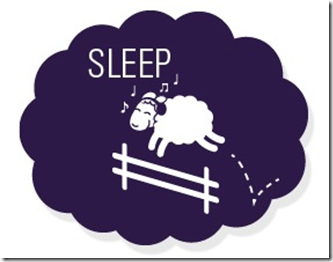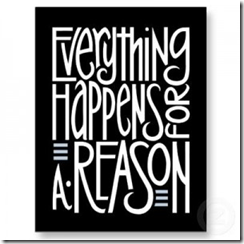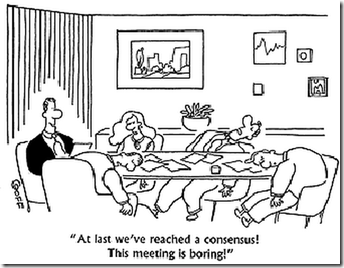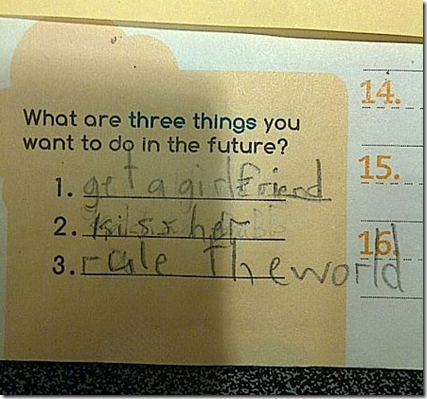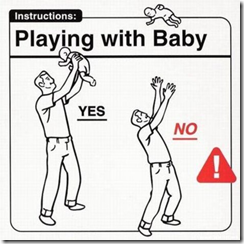In keeping with the way that I shop for the holidays (last minute), I present my first ever holiday gift guide. I have attempted to create a list of gifts that are inexpensive, in some cases unique and guaranteed to please the recipient.
Almost all of these gifts also fall into the four categories of gifts that I consider most desirable:
- Time
- Experience
- Knowledge
- Cash
If purchasing gifts for your loved ones during this holiday season, you may want to review my two simple rules of gift giving as well.
Happy holidays!
___________________________
1. Remote control helicopter
I cannot speak for women, but every single man in the world wants a remote controlled helicopter, regardless of what he may say. It is the ultimate gift for any man (with the exception of actual helicopter pilots… maybe).

2. Microloan account
Open an account at a website like Kiva.org or Microplace.com on behalf of the recipient for as little as $20 and allow him or her to begin making loans to entrepreneurs around the world. When the money is paid back into the account, it can loaned again and again,
It’s a great gift for anyone, and especially for a child. We have a microloan account in our classroom, and the kids love reading the entrepreneurs’ applications and choosing the person who they want to help.


I suggested this gift last year and met some resistance from people who don’t feel that this qualifies as a gift.
Others accused me of recommending it as a gift simply because I expected it to annoy people.
While this may be the case, it was not my intent when recommending a microloan account as a gift. Jason Kottke recommended this same gift on his blog last week (copycat) and summarizes the proper attitude toward these people nicely:
Any family or friends who think you're a jerk for doing this are annoying, and you should make new friends and find a different family.
3. Five hours of babysitting
If your friend or family member has young children, this gift is invaluable but will cost you nothing but an evening of your time.
Give this gift as often as possible.
4. Knowledge
This is another gift suggestion that I made last year. Ask your friend or family member for a list of skills that he or she lacks but would like to learn (perhaps you have some ideas of what they lack already). If you know how to do something on their list, offer to teach them.
It’s an outstanding gift. You offer time and expertise, and the recipient gains a valuable skill.
Just this past week, John Dickerson of Slate tweeted that Evernote users can highlight text in any webpage or document and use Windows-A or Apple-A to automatically send that text directly into Evernote.
This is huge for me. Better than any sweater or scarf that I might receive this year. I told him that I considered it his holiday gift to me.
My current list of things I want to learn includes:
- Change the oil in my car
- Give my car a tune-up
- Invest in individual stocks
- Hit my driver longer and more consistently
- Install replacement windows in my home
- Become more knowledgeable and skilled with Word Press
- Sync all my calendars reliably on my iPhone
5. Lord or Lady of Sealand
The Principality of Sealand is a recognized micronation, located on a former War War II sea fort in the North Sea, 7 miles off the coast of Suffolk, England.
Since 1967 the facility has been occupied by family and associates of Paddy Roy Bates, who claim that it is an independent sovereign state. Bates seized it from a group of pirate radio broadcasters in 1967. He established Sealand as a nation in 1975 with the writing of a constitution and establishment of other national symbols.
For £29.99, you can purchase the title of Lord, Lady, Baron or Baroness to the country of Sealand, along with all the official documentation required to confer such a title.

I am a Lord of Sealand. I include this fact in my bio. Despite also mentioning my two near-death experiences and my suspension in high school for inciting riot upon myself, the question most often asked about my bio pertains to my Lordship of Sealand, and this discussion often results in the subsequent purchase of a Sealand title of nobility.
Everyone wants to be a Lord or Lady. Now you can make this happen for someone for real.
6. A lifetime exemption to all future thank you cards
If you have a friend or relative with whom you regularly exchange gifts, this proverbial “Get Out of Jail” free card is invaluable because it offers the recipient life’s most precious commodity:
Time.
Also, postage.
Never again will your friend be forced to spend the time writing and sending you a thank you card. Over the course of a friendship, this is a gift that can really add up in time saved.
7. A refrigerator box
It’s tends to be a gift better suited for children, but it’s a perfectly acceptable for a more self-actualized adult, too.
There are few things in this world more entertaining than an enormous box.
I’m not the only one who recognizes the greatness of this gift.

8. Terror
The best gift I ever received was from my friend, Jeff, who handed me a gift box at my bachelor party and told me that it was his pre-wedding gift to me, and that I needed to give it to my friend, Tom. I tried to ask why I needed to give my gift to someone else but he insisted that I simply hand it over to Tom and say, “This is for you.”
I did.
We were standing near the starter’s shack at one of our favorite golf course, surrounded by friends and strangers who were waiting to tee off. Tom untied the ribbon, opened the box and found an enormous spider inside, still very much alive and apparently quite angry. He threw the box into the air, screamed like a girl, and ran about twenty feet before coming to a stop.
Tom is terrified of spiders.
What a gift.
It’s admittedly a difficult gift to reproduce, and it will require ingenuity and preparation, but if you can pull off a prank on behalf of a friend or loved one, there may not be a better gift in the world.


